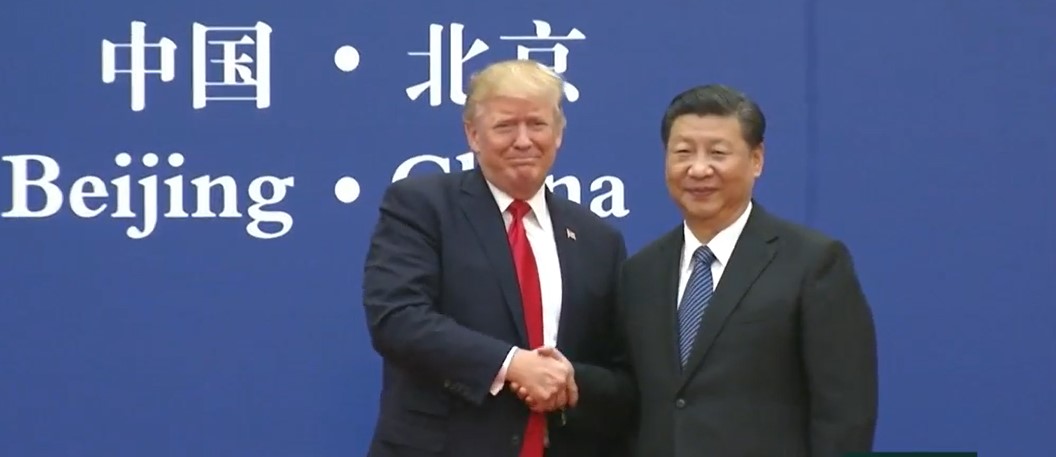Commentary: Big Tent Ideas
J.D. FOSTER: Tariffs Don’t Cause Inflation

(Screen Capture/CSPAN)
President-elect Donald Trump campaigned on raising tariffs on a long list of countries’ exports to the United States. Opponents argue these tariffs would rekindle inflation. Hogwash. The people raising these arguments are typically those who have been consistently wrong about inflation since 2020.
When inflation surged during the pandemic, we were all assured it was “temporary.” It wasn’t, and the “experts” performed the entertaining gymnastics of walking back their predictions while wiping egg off their faces.
Some self-proclaimed experts attempt to link budget deficits to inflation. Wrong again.
The Personal Consumption Expenditure Index jumped from 2% in Q1 of 2022 to 6.9% in Q2 of 2022. Over that same period, the budget deficit fell by about half from $2.7 trillion to $1.4 trillion. Inflation more than tripled while the budget deficit halved.
Since then, inflation has fallen to about 2.5% while budget deficits rose to $1.7 trillion and then $1.9 trillion over the last two years. Deficits rose while inflation fell. Good luck squaring that with the preferred Keynesian model.
The Federal Reserve finally responded to soaring inflation, and the experts confidently predicted a dramatic slowdown would surely follow. Wrong again, thankfully.
This is key point #1: Most of these experts, many of them bedecked with economics Nobel Prizes in sub-disciplines unrelated to monetary policy, simply have no clue why inflation goes up or down. So why would anyone listen to them about Trump’s tariff proposals?
Inflation soared because the Federal Reserve, with President Joe Biden’s encouragement, messed up big time during the pandemic and sent the money supply soaring. Now inflation has fallen because the Fed shifted to a moderately restrictive policy and the money supply rebalanced relative to the real economy.
This is key point #2: Monetary policy, as established by the Fed, establishes the fundamental trend for how fast or slowly prices will rise over time, not supply-chain disruptions, not budget deficits and not little green men.
Okay, now we come to the crux of the matter; key point #3: What about those tariff proposals? To answer a question with a question, suppose a virus struck America’s poultry farms, killing most egg-producing chickens. Egg prices would soar. Would soaring egg prices be inflationary? No. Every day, some prices go up relative to all other prices, sometimes by a lot but usually temporarily, and some prices go down.
Suppose a war broke out between an Arab coalition and Iran. Oil prices would soar. Would that be inflationary? Unless the Fed panicked and sent the money supply soaring, then rising oil prices would not be inflationary.
But suppose for argument’s sake that the rise in oil prices was inflationary. After the war, when oil prices once again fell, then that would be deflationary. This sort of thing has happened often over the past half century, but no one ever frets about a deflationary impulse from falling oil prices (because none has ever been observed).
A rise in the price of eggs or oil would be a rise in relative prices — the price of eggs relative to everything else.
Inflation is the rise in the overall price level reflecting all goods and services. Some relative prices rise; some fall. But the price level only rises because monetary conditions are accommodative relative to money demand. It is against this monetary backdrop that relative price movements play out.
Thus, key point #3: Broad tariffs or narrow, some domestic prices will likely rise. These are relative price movements — foreign goods’ prices rising relative to domestic goods. They mean diddly to inflation’s path.
This is not to argue the proposed tariffs are good policy or bad, only that arguments against them based on an inflation threat tell you more about the reputed experts than about the tariffs.
J.D. Foster is the former chief economist at the Office of Management and Budget and former chief economist and senior vice president at the U.S. Chamber of Commerce. He now resides in relative freedom in the hills of Idaho.
The views and opinions expressed in this commentary are those of the author and do not reflect the official position of the Daily Caller News Foundation.
All content created by the Daily Caller News Foundation, an independent and nonpartisan newswire service, is available without charge to any legitimate news publisher that can provide a large audience. All republished articles must include our logo, our reporter’s byline and their DCNF affiliation. For any questions about our guidelines or partnering with us, please contact [email protected].

